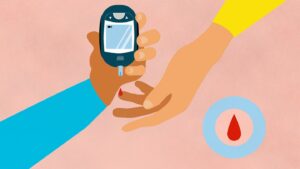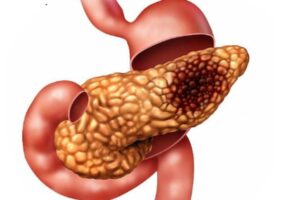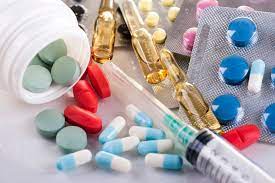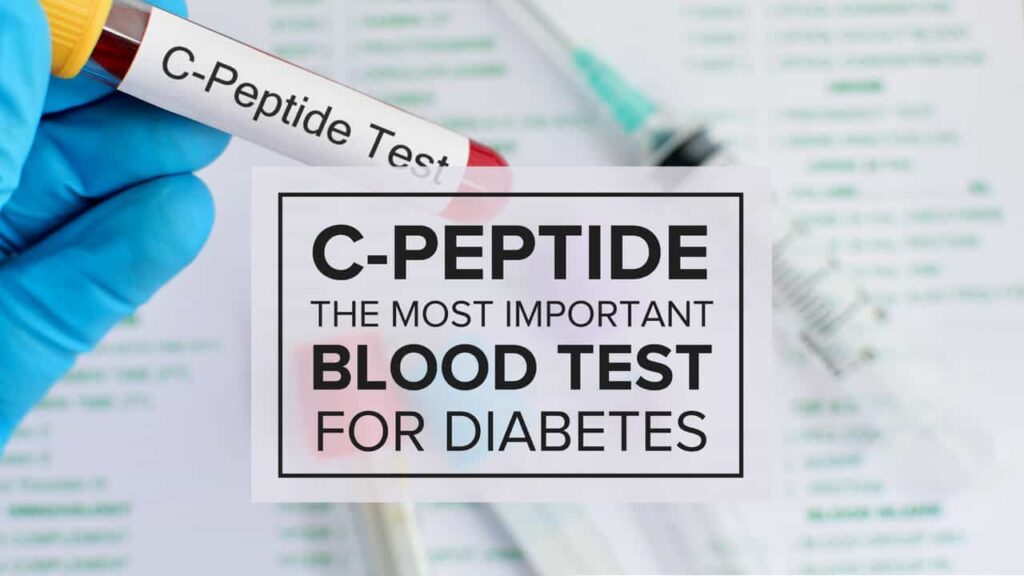Contents
What Is C – peptide?
Insulin is a hormone that is released by the pancreas as a response to glucose in the bloodstream. It is produced by specialized cells known as beta cells in the pancreas and c peptide is the by-product of the produced insulin.
For every atom of insulin created there is a particle of C-peptide. it doesn’t itself impact glucose. C-peptide is a valuable marker of insulin creation since c-peptide will in general stay in the blood longer than insulin.
It is a form of peptide composed of 31 amino acids that are released from the pancreatic beta cells during the phenomenon of cleavage of insulin from proinsulin. Its main excretion takes place via the kidney and is said to have a half-life longer than that of insulin.
It is said to improve capillary blood flow in the feet, be instrumental in the decrease of urinary albumin excretion, and significantly improves neuropathy caused in patients with type 1 diabetes mellitus.
What Is The C-peptide Test?

The C–peptide tool kit is one of the tests used by doctors to determine type 1 and Type 2 diabetes in patients showing altered sugar levels. This test is extremely useful in assessing Pancreatic beta-cell function.
It also acts as a keystone in the assessment of conditions like non-diabetes-associated hypoglycemia, insulinoma, and factitious hypoglycemia. this test has also proven essential in the prediction of glycemic controls and the levels of control and the response to hypoglycemic agents also prevents the risk of future complications that can follow diabetes.
Stimulated C-peptide Test
In a stimulated c-peptide test, the patient is administered with Glucagon between the intervals of two blood tests with an intent to stimulate insulin production.
This is usually performed for tests concerning diagnosis type 1 or type 2 diabetes.
Conditions Requiring C-peptide test
This test is amazingly helpful in surveying Pancreatic beta-cell work. It additionally goes about as a cornerstone in the evaluation of conditions like non-diabetes-related hypoglycemia, insulinoma, and factitious hypoglycemia.
Non-Diabetes-Associated Hypoglycemia

In hypoglycemia, the condition causes sugar levels to dip too low but usually, this happens with people with diabetes in cases where they have some discrepancy with either their medication or diet. But for someone with no signs of diabetes showing signs of hypoglycemia is rather a rare condition.
Symptoms of hypoglycemia:
- Confusion
- Anxiety
- Racing heartbeat
- Mood Swings
- Blurred vision
- Seizure
- Muscle weakness
- Pallor
Types of Non-Diabetic Hypoglycemia
There are generally two types of non-diabetic hypoglycemia enlisted below:
- Reactive hypoglycemia happens after food intake and takes only a few hours to activate. Some of the possible reasons for reactive hypoglycemia could be pre-diabetes which can interfere with the amounts of insulin produced by the body, recent surgical procedures might make food travel quickly into your small intestines and rare enzyme deficiencies sometimes make it hard for your body to break down ingested food.
- Fasting hypoglycemia is usually related to a disease. Medicines such as salicylates, sulfa, pentamidine drugs, quinine, all of these being pain relievers, antibiotics, or medication for serious diseases like pneumonia or malaria can act as a catalyst to causing fasting hypoglycemia.
Other reasons could be excessive drinking, damaged liver, heart, or kidneys, deficiency of cortisol, and other hormones including glucagon and epinephrine.
Insulinoma
Insulinoma is a rare kind of tumour that develops in the pancreas. The tumour is the product of the same beta islet cells that manufacture insulin and keep control of your blood sugar. Ordinarily, your pancreas makes more insulin when your glucose is high and less when your glucose is low. But in the case of insulinoma, it makes insulin constantly, even when your glucose gets excessively low.

Insulinoma is also known as a “neuroendocrine tumour” as it develops in distinct cells of your body called neuroendocrine cells. Although there is a growth of tumours usually they are small and at times not even cancerous and treatable by surgery.
Symptoms:
- Confusion
- Sweating
- Severe fatigue
- Racing heartbeat
- In extreme cases coma
Factitious Hypoglycemia
Factitious Hypoglycemia is a response to the self-administration of insulin and extensive unadministered use of sulfonylureas. The diagnosis is a result of the presence of the extensive amount of plasma level of insulin collaborating with low plasma C – peptide levels.
Sometimes serious consumption of Sulfonylurea tends to produce a biochemical pattern similar to that of insulinoma which shows significantly high amounts of plasma levels of insulin and c peptide.
Symptoms:
- Tremors
- Irritability
- Seizures
- Increased hunger
- Disturbed mental state
- Dizziness
- Major fatigue
- Coma
C-peptide Test Working
This test measures the quantity of c-peptide levels in your blood and urine. This is being a pancreatic product, the test can detect the amount of insulin produced by the body. Hence measuring the amount of c-peptide in the blood works as an indicator for the amount of insulin being produced by the body. If the levels are high that would insinuate high insulin levels pointing towards insulinoma.
C-peptide Test Preparation
A C-peptide test can be measured via either a blood test or a urine test.
During a blood test, a medical care practitioner will take a blood test from a vein in your arm, using a little needle. After the needle has been inserted, a modest quantity of blood will be taken into the test vial that will later go to the lab for running a diagnosis. You may feel a little sting when the needle goes in or out. The test typically takes under five minutes.
Other than a urine test c-peptide test can also be administered by 24-hour urine analysis. All you have to do is collect all the urine passed throughout the day and for that, your healthcare provider will offer you a container for the collection which will then go to the laboratory for running the diagnoses on the provided sample.
Few things to keep in mind during a C–peptide test is that you might be required to fast for up to 8 to 12 hours before the conduction of the test. And with the 24-hour urine test, you need to record the time whenever emptying the bladder and the urine needs to be stored in a refrigerator or a cooler with ice.
Applications of C–peptide
C-peptide can be taken up in a combination of insulin and proinsulin to differentiate between insulin-dependent hypoglycemia which shows high C- peptide levels and insulin-independent hypoglycemia which shows low levels of it.
According to medical reports for an authentic interpretation of the above-said test results, low serum blood glucose levels i.e. less than 55 mg/dl should be included in the blood sample. C–peptide testing in combination with urine screening can point out the differences between factitious hypoglycemia due to exogenous insulin and sulfonylurea intoxication.
The test also monitors:
- Pancreatic functions after a pancreatic transplant
- Beta-cell functioning in a patient diagnosed with pre-diabetic or type 1 diabetes mellitus undergoing immunomodulatory therapy.
- Difference between type 2 diabetes mellitus and latent autoimmune diabetes in adults.
Results of C- Peptide test
Results for C – peptide tests are usually available within a few days from sample collection. The test results are normally given under nanograms per millilitre (ng/ml). Normal readings for a c peptide are within the range of 0.5 to 2.7 ng/ml, variations are possible depending on the lab your sample gets tested in.
There is not much known about whether c-peptide can adequately foresee whether patients require insulin or not. An early forthcoming companion study confirmed that a pinnacle GST c-peptide of under 0.6 nmol/l was related to later treatment with insulin.
The reference ranges for C-peptide are as follows :
When Fasting: 0.78-1.89 ng/mL or 0.26-0.62 nmol/L (SI units)
1 hour after glucose intake: 5-12 ng/mL
High levels of C-peptide
More elevated levels of it have reliably been demonstrated to be related to cardiovascular and all these cause mortality in individuals without diabetes. This is apparently because raised c-peptide levels are a marker of insulin opposition and collective metabolic conditions.
High levels of C- peptide indicate
- Insulinoma
- Sulfonylurea Intoxication
- Insulin Resistance
- Obesity
- Chronic kidney disease
- Endocrine disorders
- NIPHS
Diabetic drugs that cause high c-peptide levels

- Amaryl
- Glucotrol
- Glucotrol XL
- Glynase
- Micronase
- Tolbutamide
Low Levels of C- peptide
Low levels insinuate that your body is not producing enough insulin. Lower levels of c-peptide and reduced beta-cell work have been connected to more significant degrees of glucose inconstancy. As glucose fluctuation is known to be related to increased inconveniences and mortality in patients with diabetes, c-peptide might be an indicator of future results autonomous of HbA1c levels.
The causes include
- Severely affected pancreas
- Type 1 diabetes mellitus
- Type 2 diabetes mellitus
- Exogenous insulin injections
- Hypoglycemia
- Insulin independent hypoglycemia
Risks Involved With C-peptide Test
There is little danger implied with having your blood taken. Veins and courses shift in size starting with one individual then onto the next and from one side of the body to the next. Acquiring a blood test from certain individuals might be more troublesome than from others.
Different risks related to having blood drawn are slight yet may include:
- Blacking out or feeling woozy
- Various penetrations in an attempt to find the vein
- Hematoma (blood development under the skin)
- Disease (a slight danger any time the skin is broken)
- Excessive Bleeding
- Infection at the penetration site.
A Word From MantraCare
Do you want to get rid of diabetes? Join our online diabetes consultation program and reverse your Diabetes naturally through lifestyle changes such as a Personalized Diet plan, Exercise, dieticians, and health coaches.


